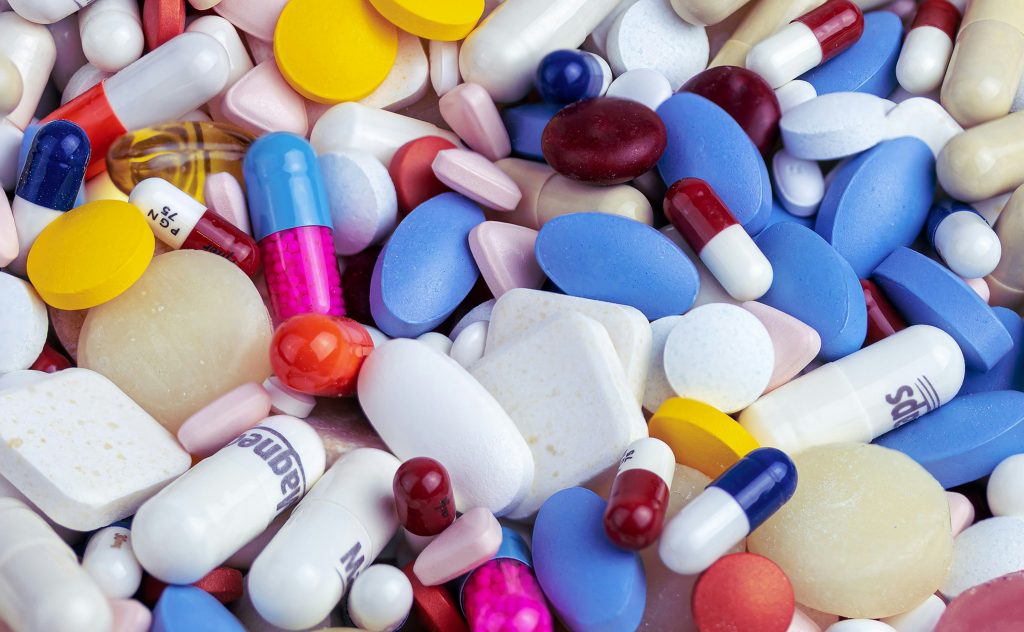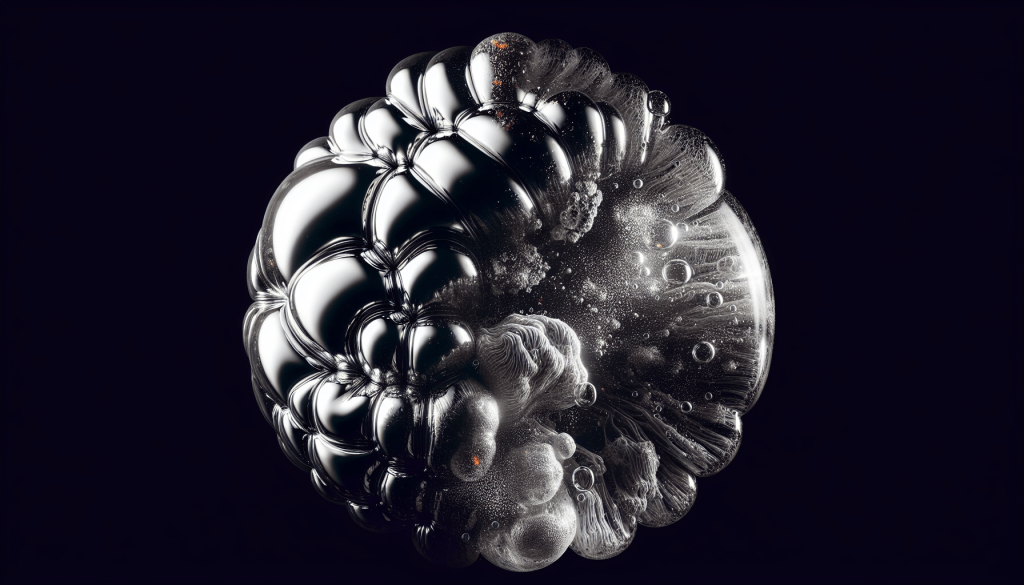Do you often find yourself wondering about the potential effects of carbonated drinks on your abdominal bloating? Well, you’re not alone! Many individuals have been curious about the correlation between consuming carbonated beverages and experiencing bloating in the abdominal region. In this article, we will explore the impact that carbonated drinks may have on abdominal bloating, providing you with valuable insights and information to help you make informed choices about your beverage preferences. So, grab a refreshing drink and let’s dive into the fascinating world of carbonated beverages and their potential effects on your abdomen!

What are carbonated drinks?
Definition of carbonated drinks
Carbonated drinks, also known as fizzy drinks or sodas, are beverages that are infused with carbon dioxide gas. This gas creates bubbles and a characteristic effervescence, giving the drinks a sparkling or fizzy quality. The carbonation process not only adds a unique texture and sensation to the drinks but also enhances their taste and appeal.
Example of carbonated drinks
Carbonated drinks come in various forms and flavors, catering to different preferences and tastes. Some popular examples of carbonated drinks include cola, lemon-lime soda, ginger ale, sparkling water, energy drinks, and carbonated fruit juices. These drinks are widely consumed and enjoyed by people of all ages across the globe.
How does carbonation occur in drinks?
Process of carbonation
The carbonation process involves dissolving carbon dioxide gas into a liquid, creating carbonic acid. This is accomplished by exposing the liquid, such as water or a flavored base, to high levels of carbon dioxide under pressure. The pressurized gas dissolves into the liquid, forming carbonic acid, which then decomposes into carbon dioxide and water. When the pressure is released, the carbon dioxide is released in the form of bubbles, creating the characteristic fizz seen in carbonated drinks.
Effect on the texture and taste of drinks
Carbonation not only contributes to the fizzy bubbles in drinks but also affects their texture and taste. The bubbles add a refreshing and invigorating sensation when consumed, making carbonated drinks particularly enjoyable. Additionally, the presence of carbon dioxide can enhance the flavors in the beverage, creating a more vibrant and flavorful experience.
What causes abdominal bloating?
Definition and common symptoms of abdominal bloating
Abdominal bloating refers to a feeling of fullness, tightness, or distention in the abdominal area. It is a common condition experienced by many individuals and can be accompanied by symptoms such as increased gassiness, discomfort, and even pain. Bloating can significantly affect one’s quality of life and may be caused by various factors.
Causes of abdominal bloating
Abdominal bloating can have several causes, including:
- Swallowing air while eating or drinking.
- Consuming gas-producing foods, such as beans, lentils, onions, broccoli, and cabbage.
- Poor digestion and absorption of certain nutrients.
- Gastrointestinal disorders, such as irritable bowel syndrome (IBS) or inflammatory bowel disease (IBD).
- Hormonal changes or imbalances, particularly in women.
- Fluid retention.
- Intestinal obstruction or blockage.
Does the consumption of carbonated drinks contribute to abdominal bloating?
Link between carbonated drinks and gas
The consumption of carbonated drinks can contribute to the development of excess gas in the digestive system, leading to abdominal bloating. The carbon dioxide gas present in the drinks can be released as bubbles in the stomach and intestines, causing increased gas accumulation. This increased gas production can result in a feeling of bloating and discomfort.
Effect of carbonation on the stomach
The carbonation process in drinks can also impact the stomach directly. The carbon dioxide gas released during consumption can lead to an increase in stomach volume, potentially causing the stomach to stretch, leading to feelings of fullness and bloating.
Research studies on carbonated drinks and bloating
Several research studies have explored the association between carbonated drink consumption and abdominal bloating. While individual responses may vary, some studies have shown a correlation between increased carbonated beverage intake and the prevalence of bloating symptoms. However, more research is needed to fully understand the relationship and the potential mechanisms involved.

Factors that increase the risk of abdominal bloating from carbonated drinks
Amount of carbonation in the drink
The level of carbonation in a drink can influence the likelihood of experiencing bloating symptoms. Highly carbonated drinks, such as sodas and some energy drinks, may contain higher levels of carbon dioxide, increasing the risk of abdominal bloating. Opting for less carbonated or lightly sparkling beverages may help reduce the likelihood of experiencing discomfort.
Speed of consumption
Consuming carbonated drinks rapidly can contribute to increased gas intake. Gulping down the drink quickly can lead to swallowing excess air, which can add to the gas accumulation in the digestive system. Slowing down the pace of consumption and allowing the bubbles to settle before taking another sip may help minimize bloating.
Individual sensitivity to carbonation
Each person may have a different tolerance for carbonation and its effects on the body. Some individuals may be more sensitive to the gas released from carbonated drinks, leading to a higher likelihood of experiencing abdominal bloating. Being aware of personal sensitivity and adjusting carbonated drink consumption accordingly can help manage bloating symptoms.
Other potential health effects of carbonated drinks
Impact on tooth enamel
Carbonated drinks, especially those containing high amounts of sugar or acidic ingredients, can have a detrimental effect on tooth enamel. The carbonation process, combined with excessive sugar or acidity, can erode the protective layer of enamel, increasing the risk of tooth decay and cavities. It is essential to practice good oral hygiene and limit the consumption of sugary and acidic carbonated drinks to maintain oral health.
Weight gain and obesity
Carbonated drinks, particularly those high in added sugars and calories, can contribute to weight gain and obesity. These beverages often provide empty calories and can lead to excessive calorie intake, especially when consumed in large quantities. Regularly consuming high-calorie carbonated drinks without compensating for the additional calories through diet or physical activity can contribute to weight gain over time.

Tips to reduce abdominal bloating from carbonated drinks
Choose low or no carbonation options
If bloating is a concern, opting for low or no carbonation alternatives can be beneficial. Many brands offer lightly carbonated or completely carbonation-free beverages, such as flavored water or herbal infusions. These options can provide a similar sensory experience without the potential for excess gas accumulation.
Decrease the speed of consumption
To minimize bloating, it is advisable to slow down the consumption of carbonated drinks. Taking small sips and allowing the bubbles to settle before each sip can help reduce the amount of gas swallowed, decreasing the likelihood of bloating and discomfort.
Avoid mixing carbonated drinks with other gas-producing foods
Combining carbonated drinks with foods known to produce gas, such as beans, lentils, and cruciferous vegetables, can intensify bloating symptoms. Avoiding the simultaneous consumption of these foods with carbonated drinks can help reduce abdominal bloating.
Overcoming the habit of carbonated drink consumption
Reducing carbonated drink consumption altogether or gradually replacing them with healthier alternatives can be effective in managing bloating. Breaking the habit of relying on carbonated drinks as a primary beverage choice and exploring other options can contribute to overall digestive well-being.
Alternative drinks for those who enjoy carbonation without bloating
Sparkling water with natural flavors
Sparkling water with natural flavors offers a refreshing and hydrating option for those who enjoy carbonation. These beverages do not contain added sugars or calories, making them a healthier alternative to traditional carbonated drinks.
Kombucha
Kombucha is a fermented tea beverage that provides a naturally carbonated and slightly tangy taste. It offers probiotics, which can promote a healthy gut microbiome and aid in digestion. However, it is essential to choose varieties with lower sugar content to avoid potential bloating from excessive sugar intake.
Herbal and fruit infusions
Herbal and fruit infusions can be a flavorful alternative to carbonated drinks. These beverages can be prepared by infusing herbs, fruits, or vegetables in water, allowing the flavors to infuse naturally. Experimenting with different combinations can provide a wide range of delicious and satisfying options.
Freshly squeezed juices
Freshly squeezed juices made from fruits and vegetables offer a nutrient-rich alternative to carbonated drinks. These juices provide hydration, vitamins, and minerals without the added carbonation. However, it is important to consume them in moderation due to their higher natural sugar content.

Benefits of reducing carbonated drink consumption
Improved digestion
Reducing carbonated drink consumption can contribute to improved digestion. Carbonated drinks can sometimes disrupt the normal digestive process, leading to discomfort and bloating. By opting for less carbonated options or reducing overall intake, the digestive system can function more efficiently.
Reduced bloating
Limiting carbonated drink consumption can help alleviate bloating symptoms, especially in individuals who are more sensitive to excess gas in the digestive system. Reducing gas intake from carbonation can minimize feelings of abdominal fullness and discomfort.
Weight management
Reducing or moderating carbonated drink consumption can support weight management efforts. By choosing beverages with lower sugar and calorie content, individuals can reduce their overall calorie intake, potentially aiding in weight loss or weight maintenance goals.
Conclusion
In conclusion, carbonated drinks may contribute to abdominal bloating due to the gas released during consumption. The link between carbonated drink consumption and bloating has been reported in certain research studies, although individual responses may vary. Factors such as the amount of carbonation in the drink, speed of consumption, and individual sensitivity can influence the likelihood of experiencing bloating symptoms. It is important to be mindful of personal tolerance and make informed choices regarding carbonated drink consumption. However, reducing or moderating the consumption of carbonated drinks can have several health benefits, including improved digestion, reduced bloating, and better weight management. As with any dietary consideration, moderation and personal awareness play a crucial role in maintaining overall well-being.






